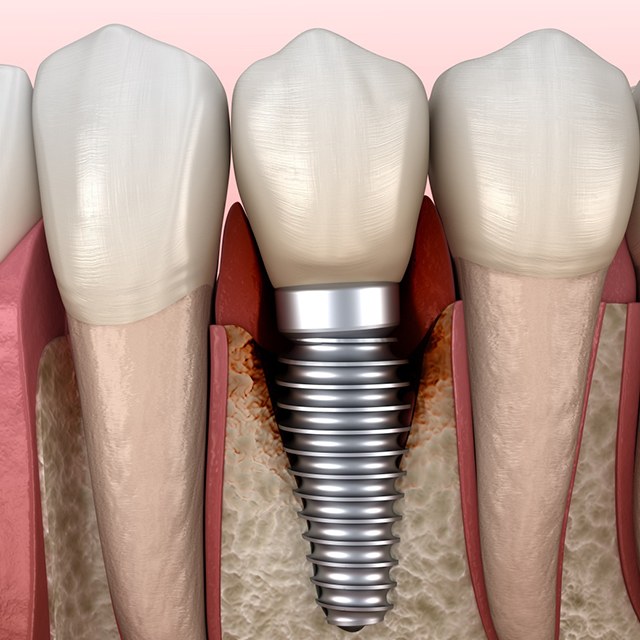Dental Implant Failure & Salvage – Katy, TX
Save Your Restored Smile
Dental implants are consistently successful. In fact, they thrive in more than 95% of cases. Still, there is always a small chance that failure will occur. If you ever believe there is a problem with your new prosthetic teeth, reach out to our Katy oral surgery team right away. Our dental implant failure and salvage services may be able to save your restored smile so you can get back to enjoying your life to the full.
Why Do Dental Implants Fail?

The most common reason for dental implant failure is an infection known as peri-implantitis. It is an infection of the tissue around an implant. Over time, it can cause so much damage that the implant no longer has a strong base of support. Often, gum disease or missteps in oral hygiene give rise to peri-implantitis.
Other possible causes of dental implant failure include:
- Physical damage, such as what might occur as the result of an accident or long-term teeth grinding
- Failed osseointegration (an implant never bonds properly with the surrounding bone)
- Certain medical conditions, such as some types of cancer
Symptoms of a Failed Dental Implant

Dental implant failure can occur at virtually any time, whether it is weeks, months, or decades after the initial placement surgery. Therefore, you should always be on the lookout for signs that something is amiss with your prosthetic teeth.
Here are some red flags that merit a visit to a dentist or oral surgeon:
- An implant feels loose. In some instances, this means there is a problem with the restoration on top of an implant. In other cases, the implant itself is in trouble.
- Signs of infection. This can include red, swollen gums, pus, bleeding, and pain around an implant.
- Difficulty eating. After you get used to using your new teeth, it should be easy for you to eat with them. Problems in this area merit professional attention.
- Unusual pain. After your dental implant surgery, some discomfort is to be expected. Thereafter, though, your smile should be pain-free.
How Dental Implant Salvage Works

You should schedule an appointment as soon as you suspect that something is not right with your implants. The earlier you receive care, the more likely it is that the issue can be managed without extensive or invasive means.
When you come in for your appointment, we will examine your mouth, use imaging equipment to look beneath your gumline, and learn about your symptoms. From there, we can design a personalized treatment plan. In some cases, antibiotics or a new restoration is all that is needed. In other cases, a failing implant must be removed altogether. After a healing period and perhaps a bone graft, it may be possible to place a new one.

